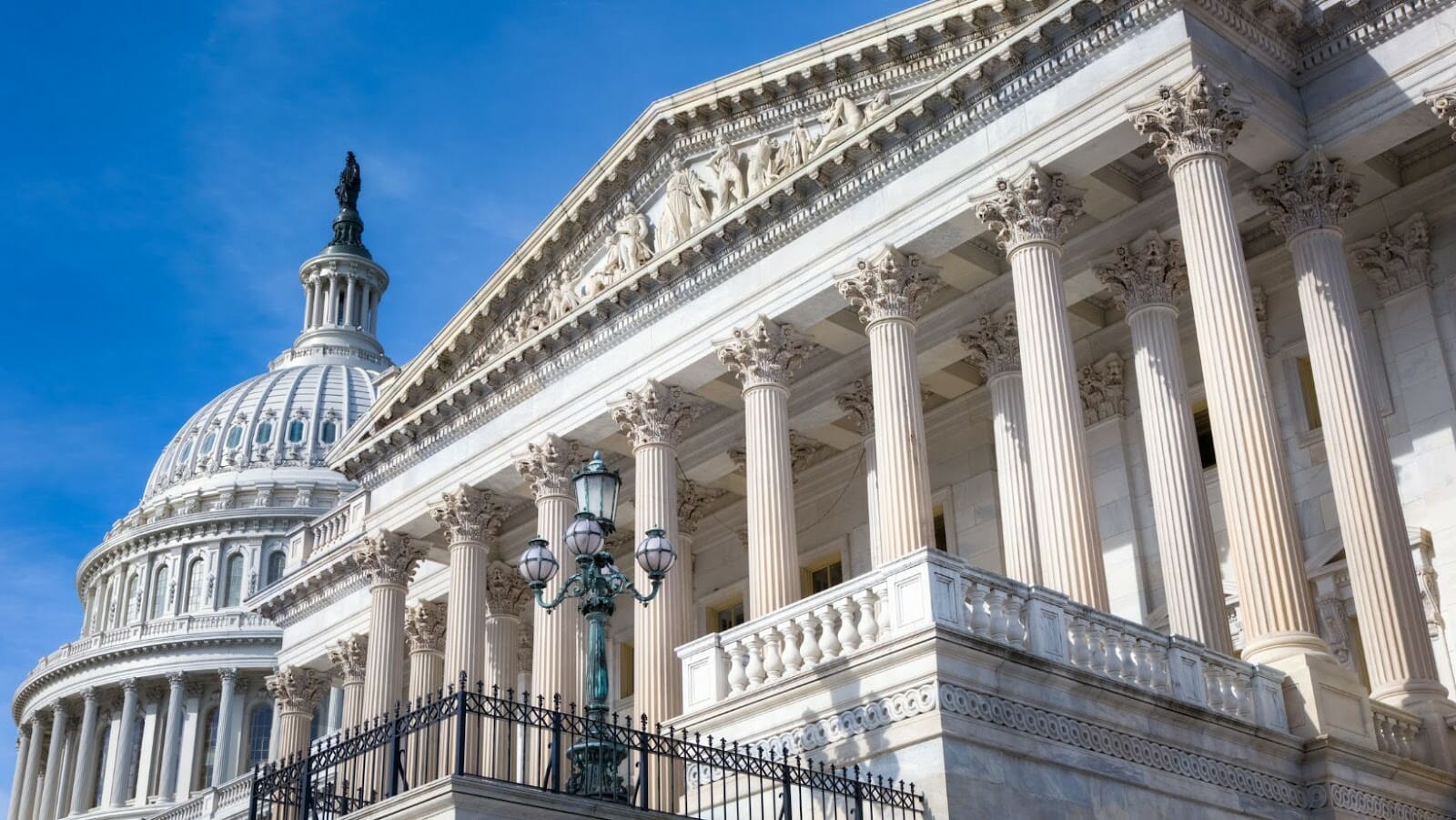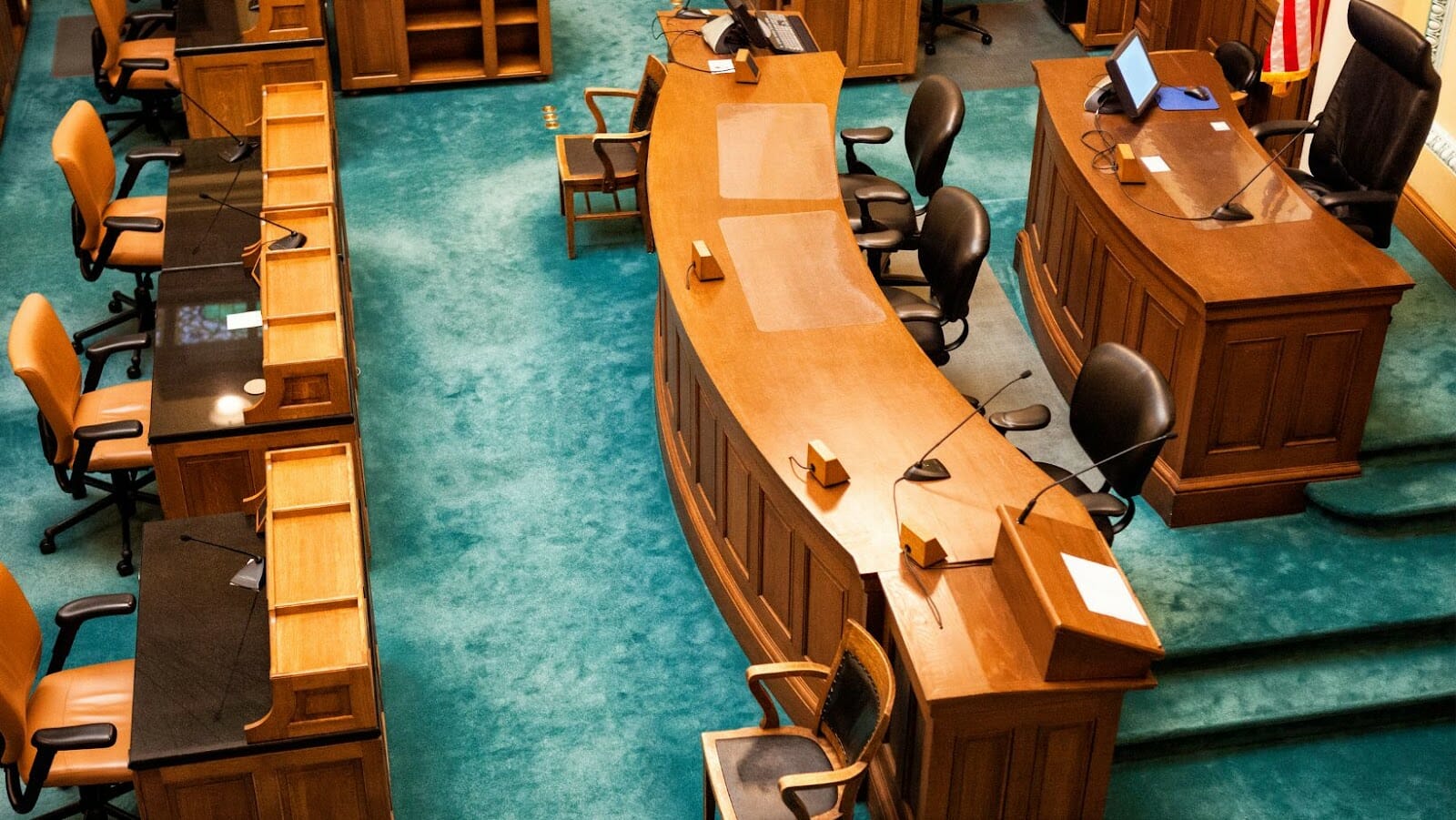
On April 9, the Senate confirmed Chris Inglis as President Biden’s top cyber adviser. Inglis previously served as the first deputy director of the National Security Agency, a post he held from 2014 to 2019. He is expected to lead the White House effort to protect critical infrastructure from cyber threats and develop strategies for responding to digital incidents. With Inglis in the role, the Biden administration looks to be in good hands regarding cyber security.
Overview of Chris Inglis’ Career
Chris Inglis is a retired United States Navy Admiral appointed by President Biden as the National Cyber Director. Mr. Inglis is no stranger to cyber security and protecting the United States’ digital infrastructure. He was a key architect of the armed forces’ modern cyber policies and operations and a leader in enabling strategic capability and integration in cyberspace operations.
Before his appointment, Mr. Inglis held many distinguished roles, including Vice Chair of the US National Security Council’s Cybersecurity Working Group, Deputy National Intelligence Officer for Cyber Security at the Office of Director of National Intelligence (ODNI). In addition, he was the Senior Advisor for Cyberspace Policy at ODNI’s National Security Branch.
Apart from military service and holding public positions, Mr. Inglis has extensive experience in both private companies and non-profit organisations such as serving on several corporate boards, providing consultative advice on cybersecurity solutions to clients globally, serving as an Advisory Board Member of Tanium Inc., a provider of cybersecurity solutions based in Silicon Valley since 2018; He is also a key member of several philanthropic efforts such as being an Advocate for Women in Cybersecurity; An Associate Fellow at Harvard Kennedy School; An Industry Advisory Board Member for SmartCyberLook; And finally he serves on several committees such as those of Johns Hopkins University Applied Physics Laboratory CyLab’s Industry Advisory Board Committee, John Hopkins University Carey Business School’s International Technology & Supply Chain Management Program Executive Committee Board, and Bay Area Council’s Task Force On Emerging Technologies & Security Risks Committee.
He also holds four patents related to cryptography from his tenure with PGP Corporation from 2009-2011 and two prior patents with Nortel Corporation from 1999–2005. His experience brings great insight into helping shape US cyber policies and operations domestically or abroad while balancing risk on both sides to ultimately bring us a safer world where our digital infrastructure can be reliably managed and secured.
Overview of President Biden’s Cyber Security Agenda
President Biden has made it clear that cybersecurity must be a priority for his administration and has taken action to strengthen the nation’s protection against cyber threats. Chris Inglis is the new National Security Advisor and is a key component in supporting and executing the President’s vision for cybersecurity.
Amongst the strategies recommended by President Biden, implementing bold measures to secure America’s digital infrastructure and creating a National Cyber Strategy (NCS) to coordinate and integrate efforts to protect our nation from malicious uses of technology. On April 22nd 2021, President Biden signed an Executive Order outlining how his administration will work towards protecting US networks, citizens, businesses, and critical infrastructure from increasingly sophisticated cyberattacks; particularly those developed by foreign adversaries such as Russia or Iran whose governments want to gain entry into computer systems or cause disruption on a larger scale to damage US interests or interfere with our elections processes.
The Executive Order establishes the Cybersecurity Safety Review Board (CSRB) tasked with identifying security weaknesses across all federal government systems, databases, communications networks, and other components of U.S. critical infrastructure to protect national security interests throughout every stage of their development life-cycle; from design through supply chain construction, operation, maintenance & replacement as applicable.
The Executive Order also creates an interagency process responsible for regularly analyzing cyberscope data collected on non-federal information systems handling sensitive information such as healthcare data membership lists regarding political party affiliations etc., so that greater oversight can be had over risks posed both unintended actors seeking malicious leverage against US interests as well potential from within suggesting systemic flaws need addressing proactively before opportunities arise where adversaries could exploit such oversight voids where policy enforcement is not consistent nor up-to-date leave us vulnerable political interference or impact destruction of services & detrimentally affect American lives economically or socially should they be successfully infiltrated.
Senate Confirms Chris Inglis as Biden’s Cyber Adviser
The Senate recently confirmed Chris Inglis as President Biden’s top cyber adviser. Inglis is an intelligence community veteran, having served as the Deputy Director of the National Security Agency from 2014 to 2019.

The Senate unanimously confirmed him by a 96 to 0 vote. Inglis brings a wealth of experience to the role and will be a major asset to the Biden Administration’s cybersecurity efforts.
Overview of The Confirmation Process
The confirmation process for Senate appointments serves as an important check on the power of the President to make appointments. It is a rigorous procedure and involves thorough analysis by members of Congress of the proposed appointment’s background and qualifications. Then, after conducting hearings and considering evidence, Senate committees will create a vote to approve or reject the appointment.
The Senate is responsible for confirming presidential appointments involving executive agencies, Cabinet positions, federal judgeships, ambassadorship, and other important national security and foreign policy roles. Most applications must go through hearings in front of a committee — such as those held by the Judiciary Committee — before they are sent to the floor of the Senate for debate.
Each side can speak during this debate before senators vote in favour or against a nominee. Each U.S state has two senators who can vote on a nomination, regardless of Party affiliation. A simple majority (51 Senators) must be achieved for a nomination to be approved by the Senate. Once Congress confirms an individual for a position in the executive office or judiciary branch it will become part of their full title as long as they stay in that position.
In early 2021, Chris Inglis was formally nominated and then subsequently approved by the U.S Senate with a wide bipartisan support as President Biden’s cybersecurity adviser — he had gone through rounds of questioning before his confirmation and appeals from leading law enforcement officials around the country were made for his approval due to his extensive knowledge and experience within cyber-security driven fields such as artificial intelligence (AI), data security, and digital payments infrastructure analysis systems – serving eventually become appointed Director of The National Cybersecurity Directorate located at The U.S Department Of Homeland Security upon his confirmation from 2019-2021 .
Comments From Senate Leaders
Senate Majority Leader Chuck Schumer (D-NY) praised Inglis’ qualifications, saying, “I know President Biden chose the right person for this critically important job. With his extensive experience in cybersecurity and intelligence, I am confident he will work with Congress to ensure our cyber defences are robust and that our country can continue to be a leader in cyber security.”
Senate Republican minority leader Mitch McConnell (R-KY) also weighed in with his approval, stating, “The Senate was wise to confirm Chris Inglis today. His credentials are clear—he’s served at the highest levels of government and knows what it takes to ensure our nation is safe from cyber threats. I look forward to seeing him excel in this role.”
Senate Intelligence Committee Chairman Mark Warner (D-VA) also voiced his backing for the choice: “Chris has proven himself time and time again as a skilled public servant and leader on cybersecurity issues, and I have no doubt he’ll continue to excel in his new role. He brings decades of experience – both military and civilian – specialised knowledge of intelligence systems and an insightful approach that are indispensable in the digital age. We thank him for his service and wish him luck.”
Details of The Confirmation Vote
On Wednesday, April 21, 2021, the Senate voted 84-10 to approve Chris Inglis as President Biden’s top cyber adviser. The confirmation vote was done by unanimous consent as there was no debate on the floor. This means that Inglis is now officially the National Cyber Director.
Inglis played a major role in establishing the National Security Agency, where he served as director from 2014 to 2019. As President Biden’s top cyber adviser, he will lead the White House’s efforts to protect government networks from digital threats and respond to emerging cybersecurity issues. He will also coordinate with other federal agencies and act as a liaison between the White House and Congress on cybersecurity matters.
The position of National Cyber Director was created in 2018 with the signing of an executive order by former President Donald Trump. Since then it has been filled by acting directors until Inglis’ confirmation vote made him the first permanent holder of this post.
Inglis’ nomination was met with a bipartisan response from lawmakers from both parties, who lauded his decades of intelligence experience and expertise in security and cybersecurity policy issues. Critics noted that Inglis’ NSA experience could lead him to focus too heavily on technical solutions rather than addressing broader issues related to data security policies such as encryption protections for private information held by companies like Google or Facebook.

Nevertheless, members of Congress have expressed optimism that Inglis is well suited for his new role in strengthening U.S cyber defences against adversaries such as Russia, China and North Korea
Chris Inglis’ Role
The Senate has recently confirmed Chris Inglis as President Biden’s top cyber adviser. This is an important position for ensuring the security of the country’s digital infrastructure and protecting the nation’s data and privacy. In this role, Inglis will be tasked with developing and implementing a comprehensive cyber security strategy and creating new policies and regulations. Let’s take a closer look at his role and responsibilities.
Overview of The Role of National Cyber Director
The role and position of National Cyber Director was created to strengthen the executive branch’s ability to protect and defend the nation’s computer networks, systems and data. The National Cyber Director, appointed by the President, is tasked with setting priorities, ensuring integration across the federal government on cyber issues, and informing Congress and other federal policy makers on matters related to cybersecurity.
The National Cyber Director will work closely with industry partners and allies to develop a robust cyber defence strategy for the United States. This includes developing an operational doctrine for cyberspace by identifying risks and threats, mitigating damage when incidents occur, setting incident response protocols across agencies, clarifying cyber policy objectives in support of national goals such as public safety or economic security over time, coordinating interagency efforts in a crisis cybersecurity situation, providing technical guidance for information sharing between private sector entities related to cyber threat intelligence or defence. Additionally, this role calls for advocacy within the private sector for shared responsibility models where appropriate; coordinating efforts between different private stakeholders on both domestic and international responses; engaging U.S.-allied partners abroad in crafting long-term strategies regarding cyber threats; as well as leading counter-intelligence initiatives against foreign actors through diplomatic actions when necessary.
In his new role as National Cyber Director Chris Inglis will implement a risk-based framework that focuses on assessing existing threats while preparing against future ones. He will also advise President Biden on emerging technologies such as Artificial Intelligence (AI) and Machine Learning (ML). Moreover he will be responsible for building bridges between the public sector, academia and industry so that resources regarding cybersecurity can be efficiently shared between all stakeholders involved. Furthermore Inglis will serve a critical role in framing discussions around legal challenges surrounding digital hacking activities such challenges include country borders diplomacy questions about data privacy conflicts between civil versus military authorities jurisdiction rights over international networks etc.
Specific Responsibilities of Chris Inglis
On Tuesday, the U.S. Senate voted 92-6 to confirm Chris Inglis to be President Joe Biden’s top cybersecurity adviser and the first National Cyber Director, a role created by Congress in 2018.
As president’s top cyber adviser and the first National Cyber Director, Inglis will oversee cyber policy at federal agencies and develop a strategy across industries—such as healthcare, finance, and energy—to defend against malicious actors abroad now that Russian hackers are targeting the U.S. infrastructure, after successive years of ad hoc approaches from different sectors caused by an overall lack of coordination in security approaches.
Inglis will be responsible for assessing federal networks for vulnerabilities and risk, drafting comprehensive cybersecurity policies to protect sensitive information from potential threats, developing an ongoing risk management strategy with federal agencies, building public/private partnerships to bolster federal cybersecurity efforts and educate sectors on best practices for defence against cyber threats as well as overseeing enforcement of any guidelines or regulations related to digital security that have been developed by law makers or established via executive order from President Biden or his leadership team.
Expectations of Chris Inglis
With the Senate’s confirmation of Chris Inglis as President Biden’s top cybersecurity adviser, the White House has given him a critical role in tackling ever-evolving digital threats. In his new position, Inglis will lead the federal government’s efforts to protect critical data, strengthen cyber-resilience, and prevent cybercrimes.
In addition to his work as President Biden’s senior-most adviser on cybersecurity policy and operations, Inglis will also provide oversight over the Cybersecurity and Infrastructure Security Agency (CISA). CISA is responsible for defending the federal government’s systems and networks against attacks by criminals, terrorists, hackers, and other malicious actors.
As part of his responsibilities, Inglis is tasked with launching a midsize technology company specialising in AI-driven cyber defence solutions. His team is expected to implement measures that prioritise identity protection; properly secure internet facing public services; ensure public/private collaboration when managing critical services; develop best practices for providing timely responses to security incidents; promote digitization projects with strong privacy protections; support international interoperability efforts; and inform federal agencies about emerging cybersecurity threats.
Inglis will also ensure that appropriate standards are established by public/private sector cooperation on topics such as 5G management practices, biometrics standards management, quantum computing security principles development. Improving collaboration among private sector organisations working on sensitive technologies infrastructure projects in foreign countries may help address potential risks related to espionage or national security threats without hampering development or trade growth opportunities in these regions. He must remain vigilant in developing necessary mechanisms for monitoring various risks associated with internet-connected systems and artificial intelligence deployments while addressing any security concerns arising from emerging technologies like 5G networks which are important components of these systems.
Cyber Security Agenda
The Senate has confirmed Chris Inglis as President Biden’s top cyber adviser, underscoring Joe Biden’s commitment to cyber security. Inglis brings a wealth of experience and insight to the President’s cybersecurity agenda, and his appointment clearly indicates the administration’s commitment to protecting the nation’s digital infrastructure. This article will look at the President’s cybersecurity agenda and dive into what it entails.
Overview of President Biden’s Cyber Security Agenda
President Biden has signalled his strong commitment to proactively addressing the growing challenges of cybersecurity and ensuring the safety of Americans online. On May 12th, 2021, the Senate voted to confirm Mr. Chris Inglis, who served as Deputy Director at the National Security Agency from 2014-2019, as President Biden’s top cyber adviser.
The White House has identified cyber threats from nation-state adversaries as a top priority on its cybersecurity agenda. It focuses on modernising infrastructure, coordination between federal and state partners, mitigating algorithmic bias, and bolstering access to digital resources for all users.
To modernise U.S. cyber infrastructure security, the Biden Administration supports investing in new technologies such as artificial intelligence (AI) and quantum computing that can provide greater protection against malicious actors. Additionally, the White House is working with energy companies to secure their information technology systems and physical infrastructures critical to national security, such as telecommunications networks and power grids.
To advance secure collaboration between federal and state partners, the Department of Homeland Security (DHS) is leading interagency efforts to better align various government agencies in cyber defence initiatives through strategic planning and structured policy guidance. Moreover, one of DHS’ recent drafted documents seeks to encourage more comprehensive standardisation across industries while providing technical recommendations for addressing areas such as shaping effective incident response plans and raising user awareness related to cybersecurity principles at all responsible organisations.
The Biden Administration also recognizes that algorithmic biases can pose a threat by highlighting potential inequities inherent in algorithms due underrepresented populations or exacerbating cultural divides online; therefore parts of President Biden’s agenda involve expanding education for algorithmic fairness across industries and clarifying industry guidance around potential misuses or ethical pitfalls related to machine learning algorithms or AI datasets whose accuracy could impede progress toward reducing disparities in data-driven outputs or services .
Finally, President Biden’s team seeks to ensure equitable access throughout all groups regardless of economic status by investing in technology tools that can provide much-needed digital opportunities to vulnerable populations such educational programs geared towards vocational training in data science skill sets. Apprenticeship opportunities teach codingscripting languages used in industry level software development. Abreast develop serviceable topics artificial intelligence. And other tech-centric subfields. This will be supplemented by initiatives aimed at increasing user awareness regarding pertinent topics regarding risk management threat mitigation etc.

Rounding out Parts I outlined above will assist Considerably improving resilience against clearances Acts aside national security amid our increasingly connective Digital age
Specific Actions Being Taken to Address Cyber Threats
The Senate has confirmed Christopher Inglis as President Joe Biden’s top cybersecurity adviser. Inglis is the first nominee to ever be appointed by a U.S. president to this role and his confirmation highlights the importance of addressing cyber threats with a comprehensive approach.
To safeguard public and private networks and critical infrastructure, the Biden administration is taking several specific steps to combat cyber threats. These include:
- Enhancing government efforts to protect federal agencies from cyber attacks
- Building stronger partnerships between government and businesses, and providing incentives for private sector networks that invest in cyber security measures
- Continually updating federal infrastructure and cybersecurity protocols
- Redirecting resources towards proactive cyber defence rather than responding to threats after they occur
- Extending existing federal powers and roles such as Homeland Security or DoD initiatives related to cybersecurity
- Identifying foreign adversaries and hostile state actors, staying ahead of their tactics, and protecting against potential attacks before they happen
- Expanding international collaboration and forming strategic partnerships between countries on both offensive and defensive initiatives in cyberspace
- Investing in developing new technologies such as advanced artificial intelligence (AI), machine learning (ML), quantum computing, cloud security solutions, biometrics, blockchain technology, digital authentication tools ,and other cutting edge defences against rising cyber threats.
Challenges Facing the Biden Administration
The Joe Biden administration promises to deliver bold and decisive changes in the US’s approach to cybersecurity. However, various challenges must be addressed to protect the nation-state, industries, and citizens. Though the appointment of Chris Inglis as the National Cyber Director marks an important step towards effecting change and alleviating growing concerns, several issues remain that could potentially hinder an effective transformation in the security landscape.
These may include:
- Securing critical infrastructure from nation-state attackers
- Developing businesses’ resource allocation for digital security and modernising systems
- Strengthening communications about cyber threats
- Advancing public – private collaboration on cyber defence
- Shifting focus from tools for trailing attackers to preventing attacks before they happen
- Cooperating with international partners to better securitize global information networks
- Investing in individuals’ digital literacy and cyber safety awareness
Conclusion
The United States Senate has confirmed Chris Inglis as President Biden’s top cyber adviser, indicating a new focus on cyber security in the Biden administration. Mr. Inglis, a retired Naval Intelligence Officer, is the first to be confirmed for the role. He brings a wealth of knowledge and experience to the position and will be an asset to the Biden Administration. In this article, we explored the implications of this confirmation, from what Inglis brings to the role to the potential ramifications of his appointment.
Summary of Chris Inglis’ confirmation
On April 28, 2021, Chris Inglis was confirmed by the U.S. Senate to serve as President Biden’s nominee to be the first National Cyber Director. The National Cyber Director is a newly created director-level position that will oversee the development and implementation of all federal cybersecurity policies and coordinate efforts between departments and the federal government.
Chris Inglis is a former National Security Agency Deputy Director (NSA) who served during some of the agency’s most sensitive times. During his six years at NSA, Mr. Inglis held multiple positions related to government policy, including head of Enterprise Security and Global Engagement. In 2018, he left the intelligence community to become a United States Naval Academy professor. Then he returned in 2019 as an advisory professor to consult with intelligence agencies on issues related to national security and cyber issues.
Chris Inglis has extensive experience in cybersecurity operations and understands complex threat environments due to his time in leadership roles at both NSA and United States Naval Academy from 2006-2019 He also brings significant expertise in outreach and education efforts for cyber security awareness initiatives needed for specific mission support activities both domestically thru within DOD organisations or internationally thru international forums related to cyber warfighting capability set improvement initiatives that involve creating awareness campaigns or establishing standards for combating challenges posed in cyberspace sectors throughout global economies worldwide He holds several certifications such as Certified Information Systems Security Professional (CISSP) , Certified Network Defense Architect (CNDA) , Certified Ethical Hacker (CEH), GIAC Penetration Tester certification (GPEN) As well Technology Infrastructure Library V3 Foundation Certificate showing aptitude on multiple areas when combined making him highly capable of surpassing expectations required for rationalising current policies or developing holistic strategies for addressing challenges presented with our Nation’s Cyber posture
At his hearings before Congress, Chris pledged his commitment “to protect America’s citizens from any harmful action, foreign or domestic” committed through cyberspace attacks on critical infrastructure sectors including telecommunications, energy rations , healthcare services , etc supporting individuals all over our country . With his confirmation, Chris became instrumental certain initiatives authorised by Congress can be expedited against those posing threats while deterring those adversaries in similar scenarios globally ensuring our way of life remains secure free of any harm posed by malicious actors taking advantage during these unprecedented times thus giving people peace of mind their safety is a priority at administration level His confirmation empowers America’s technology workforce thru fostering partnerships based on purposeful actions allowing more innovative contingencies while being extremely prudent when it comes investing resources knowing every dollar spent yields maximised payoffs protecting US citizens globally paired with efficient capabilities leveraging resources available enabling access world class talent across multiple divisions higher administration’s goal mitigating risk associated technologically advancing society peacefully even during heightened risks we face currently.
Summary of President Biden’s cyber security agenda
President Biden has prioritised the development of a comprehensive, forward-looking plan to protect the digital infrastructure and data of the United States. As part of this effort, President Biden appointed Chris Inglis as his National Cybersecurity Advisor. Throughout his career as a US intelligence and private industry leader, Mr. Inglis has consistently demonstrated an unwavering commitment to strengthening national cyber security and protecting American citizens from all forms of malicious cyber activity.
As President Biden’s top cybersecurity adviser, Mr. Inglis will lead the development of a cybersecurity strategy that considers the rapidly changing nature of technology and its implications for national security. This will include developing offensive measures to combat existing threats and anticipate new ones and cultivating relationships with industry stakeholders such as technology companies, think tanks, and universities to facilitate open dialogue about cyber security topics. Along with his team of professionals at the National Security Council (NSC), Mr. Inglis will also help define how the United States engages in international conversations around digital governance while playing an integral role in coordinating government-wide responses to major cyber incidents when they arise. This comprehensive approach should ensure that all levels of government are well-resourced, accountable, efficiently organised and unified in their efforts towards establishing robust cybersecurity protections across all domains within America’s digital environment.



